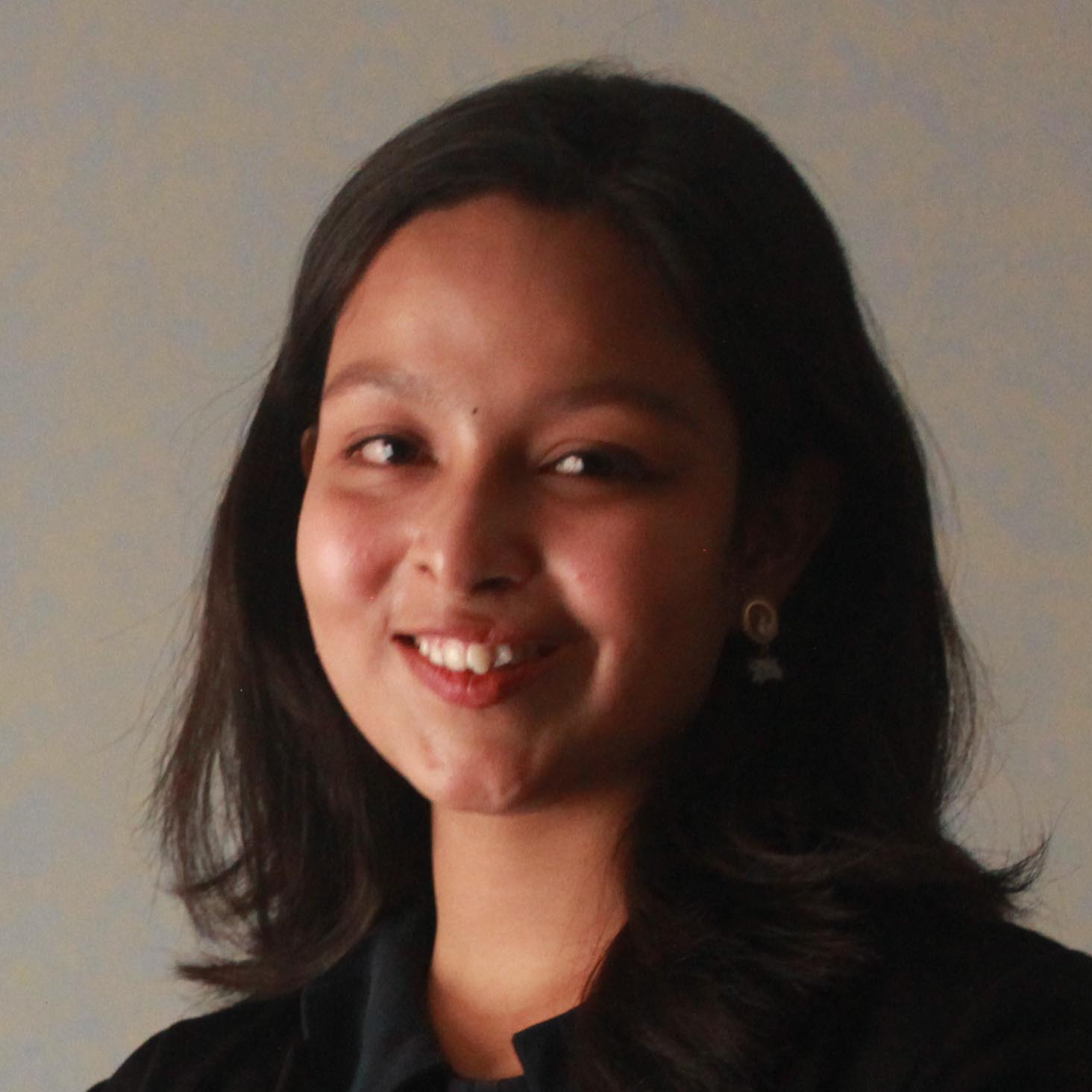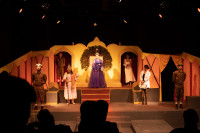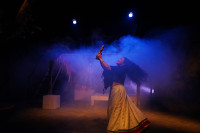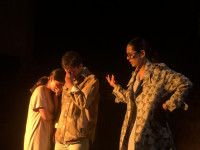Theater
Facing our demons
‘Chyattiyeko Parda’—which translates to ‘The Torn Curtain’— revolves around a father’s death and how each family member navigates the loss.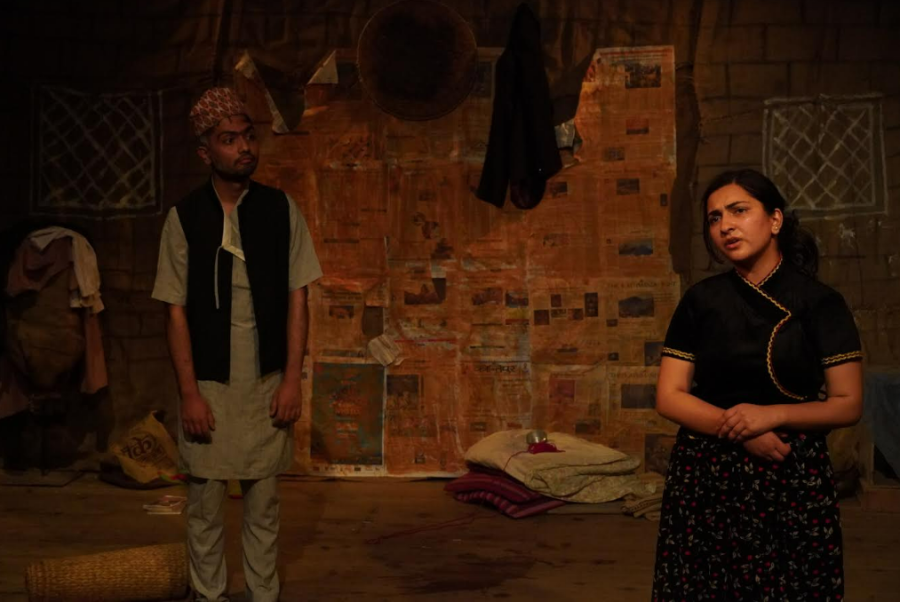
Rose Singh
Our realities are shaped by the perceptions that we absorb. Many of these perceptions are based on our experiences, and no matter what the catchy self-help websites tell us, sometimes, things simply do not get better. In these times, instead of holding on to wishful thinking, it becomes imperative to pause and become a little introspective.
‘Chyattiyeko Parda’—which translates to ‘The Torn Curtain’— revolves around a father’s death and how every family member navigates through this loss. The story, originally written by Govinda Bahadur Malla (Gothale) in 1958, has been adapted by La-Her Art Court.
When one enters the theatre, they are welcomed by utter darkness. A figure comes forward with a candle setting the play’s tone. Here, the audience feels the narrowed vision of the actors–whose perception of reality is heavily guided by the area the candle’s light covers.
The plot’s central character, Mananaani, is shown to develop a conflicting resignation in serving drinks to men at her house, which has now been converted into a ‘Bhatti (a type of local bar)’ after the death of the patriarch.
It becomes clear very early on how dissatisfied she is with how life has turned out for her–a girl who was supposed to grow up with education and a good life now sees that his death has uprooted her life.
The play incorporates music and sounds of cymbals that seeps in, enhancing their experience of being in the theatre. Similarly, when the reality of the mother-daughter relations gets revealed, the audience is introduced to something even more uncomfortable. Here’s a mother raised in affluence, which she cannot let go of. Despite the death of her husband bringing the family to the streets, she chooses to live in sinister ignorance.
The mother projects this obsession with capital on her daughter by constantly implying that Mananaani use her beauty and physique to increase business at the ‘Bhatti’. For her, the daughter has no individuality of her own. The moment the daughter speaks up, her insecurities with herself are triggered, making her turn a blind eye to her daughter’s challenges. It pulls the curtain down to expose the psychological conflict fueled by internalised patriarchy that dictates mother-daughter relations.
Mananaani also has an elder brother stuck in a dead-end job that pays him little to nothing. And so it becomes her responsibility to get her family out of the rut. After Mananaani faces rejection from her beloved, she develops a resentful idea of marriage simply about sustenance with a man almost 30 years older than her. Interestingly, the point of objection on her mother’s part isn’t the married status of the man but rather that his caste is lower than theirs.
The mother is seen to be in limbo, failing to save her daughter from an immoral marriage and the younger son, Prakash, falling prey to gambling. The elder brother is also a reflection of how being wrapped in pursuit of economic sustenance often makes people distant from their emotions.
You can see how everyone is acting out of desperation to make life better, causing irreparable harm to one another. The play succeeds in placing the audience in the character’s shoes, making them feel what the characters are feeling. Although the characters cannot see the underlying problems of their condition, the play makes everyone in the audience recognise the fault lines in familial heterogeneity.
Every character in the play has a purpose or significance, like Chekov’s gun. The play ends with a soul-stirring note by the dead father, who looks upon the family with despair. The audience is left at a cliffhanger, trying to decode if the narrative of the dead underlooking their loved ones holds a positive impact or deepens the faithlessness.
‘Chyattiyeko Parda’ is an essential play that helps unearth the difficult feelings we experience. It hints that although life is deeply tied to pain, it is the ability to feel instead of just intellectualise or ignore one’s emotions that make things easier in the long run.
The play will continue till May 23 at Sarwanaam Theatre, Kalika Marg, Kathmandu.




 18.95°C Kathmandu
18.95°C Kathmandu